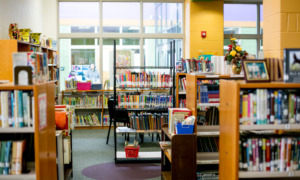WASHINGTON — Legislation to reauthorize a major education law would preserve dedicated funding for the 21st Century Community Learning Center initiative, a top priority for after-school service providers.
The bill also would give after-school programs more opportunities to share data with schools, focus on areas such as wellness and financial literacy, and emphasize the importance of STEM education.
Jodi Grant, executive director of the Afterschool Alliance, said the bill is “a huge and much-needed win for America’s children and families.”
“Preserving this dedicated funding stream means millions of students and families will benefit from the quality after-school and summer learning programs that keep kids safe, inspire them to learn and help working families,” she said in a statement.
This initiative is the only federal funding source dedicated solely to after-school, before-school and summer learning programs. The grant program provides funding for after-school care to 1.6 million low-income children nationwide.
A bipartisan group of top U.S. House and Senate lawmakers unveiled the bill to reauthorize the Elementary and Secondary Education Act (ESEA) on Monday. A conference committee approved a framework for the bill by a vote of 38-1 in mid-November.
Lawmakers could vote on the bill, called the “Every Student Succeeds Act of 2015,” as early as this week.
The 21st Century Community Learning Center (CCLC) initiative has been a top priority for after-school organizations as House and Senate negotiators hashed out a compromise version of the ESEA reauthorization after each chamber passed its own version (S 1177, HR 5). The final bill’s language on CCLC largely follows the Senate version.
The initiative is just one part of the sweeping and contentious education law, currently known as No Child Left Behind.
Lawmakers also came to agreement on issues including accountability measurements, Title I grants, teacher effectiveness and the funding structure for grant programs.
The bill would give less funding to the CCLC initiative than current law, authorizing $1 billion for the program in fiscal year 2017, before bumping it up to $1.1 billion for the following three years.
Grant said more funding is needed to meet the need for more quality after-school programs. The Alliance already has been urging lawmakers to provide more funding during the appropriations process.
“We will not stop working until funding levels are raised and all children have access to the quality after-school and summer learning programs they need and deserve,” she said.
The bill also would make it easier for schools and community-based organizations to share information, another way to boost after-school programs, said Erik Peterson, vice president of policy at the Afterschool Alliance.
“We know the research shows the programs that have a good relationship between community-based programs and schools improve the outcomes for kids,” Peterson said.
In addition, the bill would update the performance measures used to evaluate after-school programs, broadening the criteria from standardized test scores to include markers such as attendance, behavior and grades.































